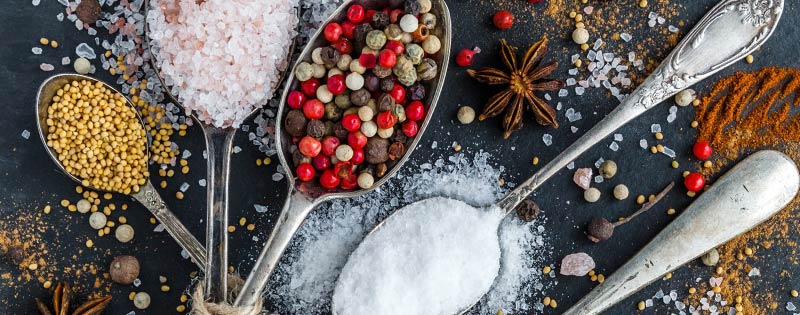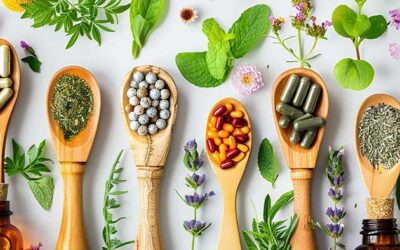by Brent Hearn •
Our bodies are complicated machines made up of complex systems. One of the many things that can throw a kink in those systems is inflammation. Inflammation is not necessarily bad in and of itself; it’s the body’s natural response to injury or infection. If you’ve ever sprained an ankle, suffered a bee sting, sustained a burn, or had surgery, you’re likely familiar with inflammation. (Okay, so if you’re a living, breathing human who is old enough to be reading this, you’re likely familiar with inflammation.)
That said, there’s a flip side. Chronic inflammation can contribute to a host of serious problems: rheumatoid arthritis, heart disease, cancer, and sepsis, just to name a few. The good news is that there are certain spices we can consume that have been shown to reduce inflammation. Variety may be the spice of life, but spices may just improve—and possibly even prolong—your life!
Cinnamon
Yep—this common flavor enhancer made from the dried inner bark of the Cinnamomum verum tree and it can help fight inflammation! Sprinkle a little in your hot cider or hot chocolate or add a bit to a savory dish for a dash of sweetness.
Ginger
This spicy root has, well,”roots” in a host of medicinal uses, both ancient and modern. You can find it in multiple forms (fresh, powdered, candied, etc.), and—you guessed it—it can help to reduce inflammation.
Author’s Note: Have a hankering for something sweet? Dip candied ginger in melted dark chocolate and let it cool before consuming. The spicy/sweet combo makes for a more complex flavor profile than your typical treat and will give you a new appreciation for this powerhouse of a food. (Consume in moderation, of course.)
Chili Peppers
It seems somewhat counterintuitive that something that induces a sensation of heat can decrease inflammation. The secret lies in capsaicinoids, the same compounds that give chili peppers their heat. (Hey…who are we to argue with science?)
Blend ‘Em Up!
Since the spices mentioned thus far—along with others—have anti-inflammatory properties on their own, doesn’t it stand to reason that you could combine them to even greater effect? A study published in The Journal of Nutrition seems to point in that direction. Though more research is needed, the results suggest that a combination of spices is more effective than any individual spice at reducing inflammation. In other words, it’s a good (and tasty) idea to cover your bases.
Mouth-Watering Medicine
We’ve all taken medicines that ranged from “grin and bear it” to “just try your best to keep it down.” Isn’t it nice to know that there are some “medicines” that can not only enhance your meal, but also your life? On your next trip to the grocery store, hit up the spice aisle. Don’t settle for a bland life—spice things up!
Sources:
https://nutrition.org/adding-a-variety-of-spice-to-food-may-benefit-health/
https://academic.oup.com/jn/article/150/6/1600/5811497?searchresult=1
https://medschool.vanderbilt.edu/vanderbilt-medicine/the-good-the-bad-and-the-ugly-of-inflammation/
https://www.cancer.gov/about-cancer/causes-prevention/risk/chronic-inflammation









 ▶︎
▶︎  Why is the Discount Challenge prize amount $15,024? Because that is the average “per-occurrence” fine for Medicare inducements. That’s not $15,024 per patient, that’s not per provider, that’s PER VISIT. Stinks, doesn’t it? To us, the prize amount is worth the investment if we can help our profession better understand proper discounting.
Why is the Discount Challenge prize amount $15,024? Because that is the average “per-occurrence” fine for Medicare inducements. That’s not $15,024 per patient, that’s not per provider, that’s PER VISIT. Stinks, doesn’t it? To us, the prize amount is worth the investment if we can help our profession better understand proper discounting.